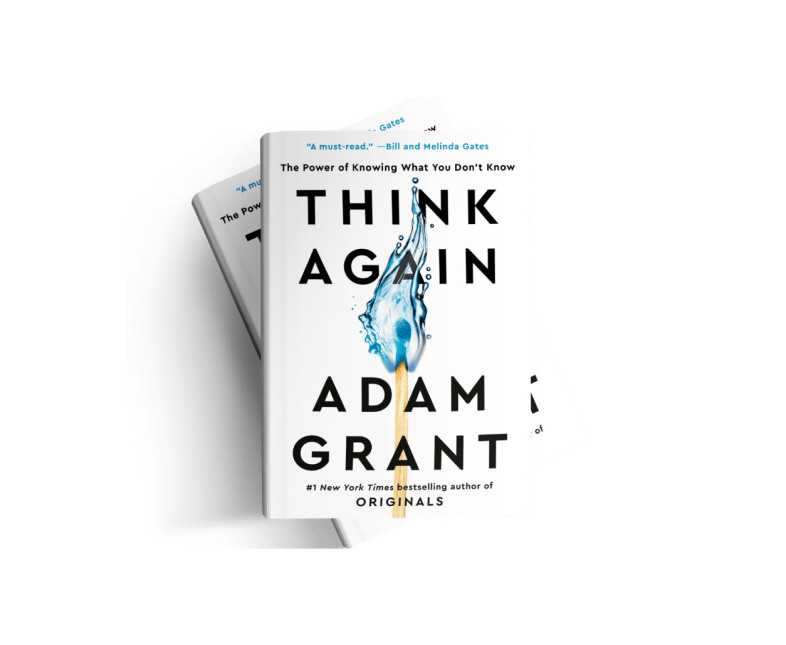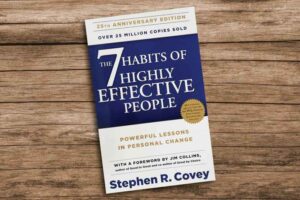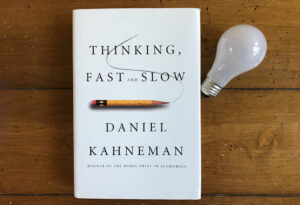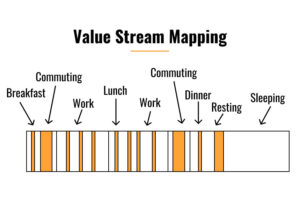PART I. Individual Rethinking
Updating Our Own Views
1. A Preacher, a Prosecutor, a Politician, and a Scientist Walk into Your Mind
- In 2009, Blackberry was dominating the U.S. smartphone market. However, in 2014, its market share was less than 1%. Blackberry failed to adapt.
Rethinking is a skill set and a mindset.
- Knowledge is increasing and accelerating, what we thought was true may need to be updated.
- We have 3 identities when we think and talk:
- The preacher when we protect our beliefs.
- The prosecutor when we detect flows in people’s reasoning.
- The politician when we want to get approval from our audience.
- We may forget to rethink our views when we play these 3 identities.
A scientific mind has the habit to doubt and updating its view based on data.
- Compared to the control group, the startups in the scientific thinking group average 40 times in revenue over the control group and attracted customers sooner. They pivoted more than twice as often.
- Great leaders are often described as decisive and certain. Yet a scientific approach may yield better results.
- Scientists themselves sometimes adopt the preacher/prosecutor/politician modes.
- Mike Lazaridis, the CEO of Blackberry had the conviction that the market wanted a device for work and email. The success of the iPhone contradicted his belief but he was still unable to rethink his conviction.
- People strong in math have a harder time recognizing their biases when the data contradict their beliefs.
- Having a scientific mindset is being actively open-minded and searching for reasons why we might be wrong.
Humility is the first step to scientific thinking. When we know that we don’t know, we can doubt and have the curiosity to learn.
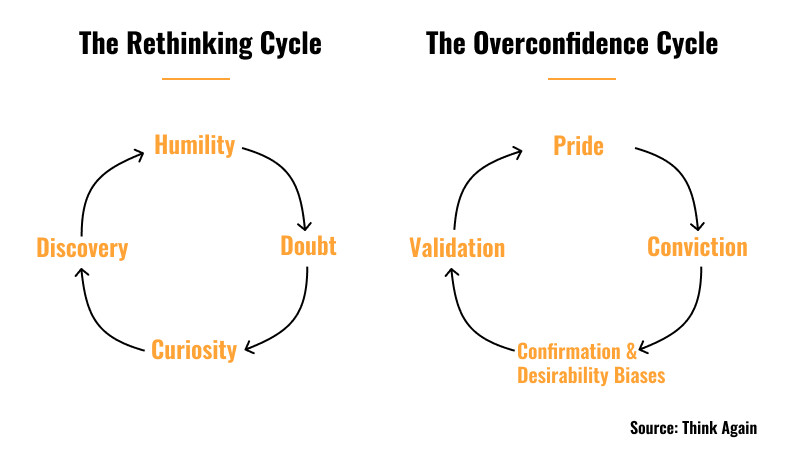
- Visions for change are more compelling when they include visions of continuity.
- Steve Jobs didn’t believe in the iPhone, it is his engineers who believed that including a phone in the iPod would become a success. They promised they were going to do it the Apple way.
2. The Armchair Quarterback and the Impostor: Finding the Sweet Spot of Confidence
- A person has Anton’s syndrome when he cannot see but behaves and talks as though he was sighted.
- We also have blind spots in our knowledge. We may be blind to our blindness.
- Armchair quarterback syndrome: when confidence exceeds competence.
- Dunning-Kruger effect: When we lack competence, we are most likely to be brimming with overconfidence.
When a person is certain to know, he doesn’t need to rethink.
- A fragile ego is one of the causes of overconfidence.
- A novice doesn’t fall into the Dunning-Kruger trap because he knows he knows absolutely nothing.
- Amateurs who have more knowledge than novices are the ones who become overconfident.
- Humility is knowing we are flawed and fallible.
- Confidence is a measure of how much you believe in yourself.
Having humility without confidence and you may get paralyzed by doubt. The sweet spot is “confident humility”: believing in our capability while knowing we may be wrong.
- Impostor syndrome: confidence < competence
- People who have impostor syndrome are respectful, empathetic, and professional. Impostor syndrome may be beneficial and not solely a detrimental disorder.
- Those who have imposter syndrome are motivated to work harder, work smarter, and are better learners.
- Confidence comes through achieving challenging goals.
Arrogance makes people blind to their weaknesses. Humility encourages people to raise questions and learn.
3. The Joy of Being Wrong: The Thrill of Not Believing Everything You Think
- Ideas survive not because they are true but because they are interesting.
- The sequence is surprise, curiosity, and finally thrill.
- The totalitarian ego protects us by feeding us with lies when some ideas shutter our identity and core beliefs.
- The amygdala is the lizard brain that reacts when we feel threatened.
Avoiding being attached to beliefs helps for constantly rethinking old ideas.
- Being wrong becomes part of the learning process.
- Detaching your present from your past and detaching your opinions from your identity open people to the joy of being wrong.
Values are the core principles in life that define you and not your beliefs.
- If being wrong repeatedly leads to the right answer, being wrong and rethinking often is part of the process.
- Experienced forecasters have the capacity to rethink their position when they have new data. But if they are professionals, they still may fall into the desirability bias.
- They use a list of conditions under which they should change their mind to prevent them to be too attached to their wrong predictions.
Admitting being wrong doesn’t make you less competent, it makes you display honesty and the willingness to learn.
- Having the scientist thinking is being committed to the pursuit of truth even if it means we may have wrong opinions.
4. The Good Fight Club: The Psychology of Constructive Conflict
- There are two kinds of conflict: relation conflict and task conflict.
In companies, high-performing groups keep their relation conflict low but have task conflicts.
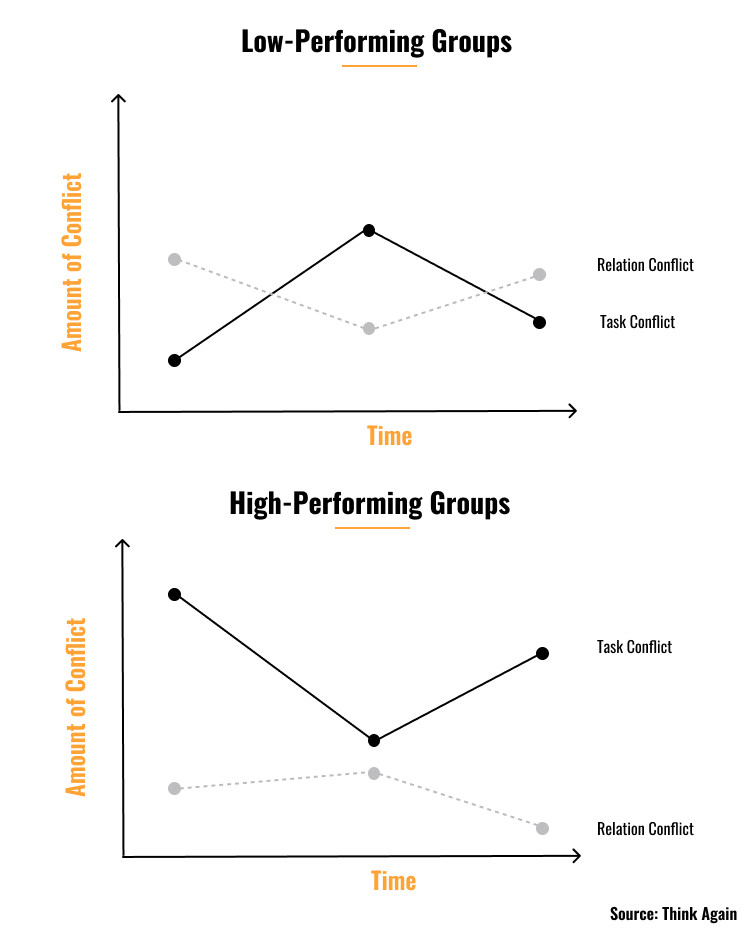
- Task conflicts stimulate creativity and smarter decisions.
- Parents who have respectful arguments have children who demonstrate compassion and helpfulness.
- Agreeable people are friendly and polite, but avoid conflicts.
- On the contrary, disagreeable people tend to be more critical, skeptical, and challenging. Conflicts energize them.
Conflicts activate rethinking cycles, they give the harsh feedback we don’t want to hear.
- Brad Bird at Pixar surrounded himself with disagreeable people to find new solutions.
- These people must be givers, not takers. Their critics help to elevate your work, not feed their own ego.
- Being around disagreeable people makes the agreeable people more confident to disagree.
- Challenging someone’s thoughts means we care and value their views to contest them.
Focusing on the how instead of the why avoid task conflicts turning into relationship conflict.
- The why is connected to emotions and convictions while the how is technical.
PART II. Interpersonal Rethinking
Opening Other People’s Minds
5. Dances with Foes: How to Win Debates and Influence People
Average negotiators try to convince you, expert negotiators try to move together towards the truth.
- The more we try hard to convince with logic and data, the more the other person will push back and resist.
- Expert negotiators look for common ground, they don’t water down their views with many weak arguments, they express curiosity by asking questions, and they comment on their feelings.
- Convincing the other person to think again requires us to demonstrate openness by acknowledging their view.
- Being reasonable means that we can be reasoned with. Listening to what someone else is saying is showing that we are reasonable.
- “What evidence would change your mind?” If the answer is “nothing,” then there’s no point in continuing the debate.
Communicating opinions with some level of uncertainty signals humility and opens the discussion.
- During an interview, people traditionally emphasize their strengths and downplay their weaknesses. Another strategy is to legitimate your weaknesses as opposed to bragging or humblebragging. You show you are self-aware of your shortcomings and secure enough to admit them. Then emphasize a small number of core strengths.
6. Bad Blood on the Diamond: Diminishing Prejudice by Destabilizing Stereotypes
- Rivalries exist in sports. Fans have strong animosity against the rival team because they see them as competing for the resources and threatening their identity (Red Sox vs Yankees).
When stereotyping a group, you disidentify with your adversaries, coming to define who you are by what you are not.
- People seek to belong to a tribe and take pride when the tribe wins.
- It is hard to undo a stereotype for mental and social reasons when it is already formed.
- People prefer to twist their views instead of adopting new thinking.
As they spend time with people who share the same stereotypes, group polarization is reinforced by conformity.
- There are 3 ways to disrupt stereotypes:
- The overview effect: astronauts who come back from space give more importance to the collective good than to individual achievement. They realize that human beings share a common identity.
- The psychology of peace: humanizing the other to build empathy. However, in experiments, individuals may be seen as different from the group but the stereotype of the group remains.
- The arbitrariness of their animosity: understanding that stereotypes are built on unfair and arbitrary reasons makes people reconsider their view of the group.
- In psychology, counterfactual thinking is imagining how our life could have become under different circumstances. The person is asked to imagine his life if he was born in the same conditions as the stereotyped group. They start to explore the origins of their own beliefs.
- Many of our beliefs are cultural truisms, widely shared but rarely questioned.
- One who is oppressed by stereotypes has good reasons to avoid the other group but avoiding the conversation is giving up the opportunity to open their mind.
7. Vaccine Whisperers and Mild-Mannered Interrogators: How the Right Kind of Listening Motivates People to Change
- Vaccine whisperers make people recalcitrant to vaccines to get vaccinated.
- They use the motivational interview technique to understand their motivations:
- Asking open-ended questions
- Engaging in reflective listening
- Affirming the person’s desire and ability to change
- Summarizing to explain your understanding, check whether you have misrepresented anything, and inquire about their next step
They don’t try to tell the other people what to think or to do but help them find their motivation to change.
- The interviewer is a guide, not a leader or a follower.
- The technique should not be used to manipulate but a genuine desire to help.
- Listening, being curious, having humility, and allowing sharing his view, in the end, the person will feel less anxious and defensive. They will speak their mind and feel less pressure to avoid contradictions in their thinking.
- Inverse charisma: great listeners make the audience feel smart.
- Asking for permission to share the data opens the person’s mind to listen to new ideas.
PART III. Collective Rethinking
Creating Communities of Lifelong Learners
8. Charged Conversations: Depolarizing Our Divided Discussions
- After reading an article that describes clench topics as a complex problem with many shades of grey instead of black-and-white, both parties manage to find an agreement and sign a joint statement.
- Binary bias: the tendency to simply a complex problem into two categories.
- When presented with the arguments and data from the opposing side, people don’t rethink their position, it even makes it easier for them to stick to their position.
Displaying the complexity of a topic makes people curious, and disrupts their overconfidence.
- Desirability bias: our beliefs are shaped by our motivations.
- In the case of climate change, if you have the binary bias, you may think there are two categories: the believers and the nonbelievers.
- According to polls, there are actually six categories, the believers (blamed and concerned) represent over 50% of the Americans while the nonbelievers range from cautious to disengaged to doubtful to dismissive.
- Only 10% of the nonbelievers are dismissive. Because of the disproportionate coverage by the media, the general population overestimates the size of the dismissive group.
- If they think nobody cares, they will have low motivation to act against climate change.
- The media uses catchy and simple headlines to grab our attention. As a consumer, we have a role to recognize complexity as a signal of credibility.
- Psychologists find that people will ignore or even deny the existence of a problem if they’re not fond of the solution.
- Presenting the caveats and contingencies of a study makes the author more credible.
- Writers may avoid presenting the caveats for fear of confusing the audience which is a mistake.
- Daniel Goleman and Jordan Peterson have opposing views on the impact of emotional intelligence on performance in a company. The key point is not whether emotional intelligence is meaningful but when.
- An idea cult: a group that defends oversimplified ideas and persecutes anyone who calls for nuance.
Taking the other side’s perspective doesn’t make people reconsider their position, but trying to gain insight by talking to people has more effect.
- During a conversation, people who experience a varied spectrum of emotions are more willing to rethink. Mixed emotions are a signal that the person recognizes that the topic is more complex.
9. Rewriting the Textbook: Teaching Students to Question Knowledge
- The knowledge we learn in textbooks may have errors, old information, or omission.
- Teachers don’t spend enough time teaching students to question themselves and what they are learning.
Evidence shows that if false scientific beliefs aren’t addressed in elementary school, they become harder to change later.
- The guidelines of fact-checking:
- don’t accept the information for face value
- popular information is not necessarily reliable
- the sender of information is often not its source
- While lectures are more popular, pleasant, and entertaining for the audience, students practicing active learning gain more knowledge because mental efforts lead to deeper understanding.
- When the speech is eloquent and inspiring, the audience forgets more about the content and scrutinizes less the material.
- The speaker tells us what to think but doesn’t teach us how to rethink.
- Straight-A students have more challenges to rethink as they are more afraid to take risks and prefer to regurgitate the knowledge.
- The teacher Ron Berger makes his students in elementary school make drafts and then improve on them with the input from the other students. They rethink and rework their drafts several times. The drafts are put on display to facilitate discussions and critics.
Education is more than accumulating knowledge, it is also building the habits of revising our drafts and the skills to keep learning.
10. That’s Not the Way We’ve Always Done It: Building Cultures of Learning at Work
- NASA has this culture of excellence in execution but they failed several times and astronauts died because of human mistakes before learning.
Learning culture thrives under the combination of psychological safety and accountability.
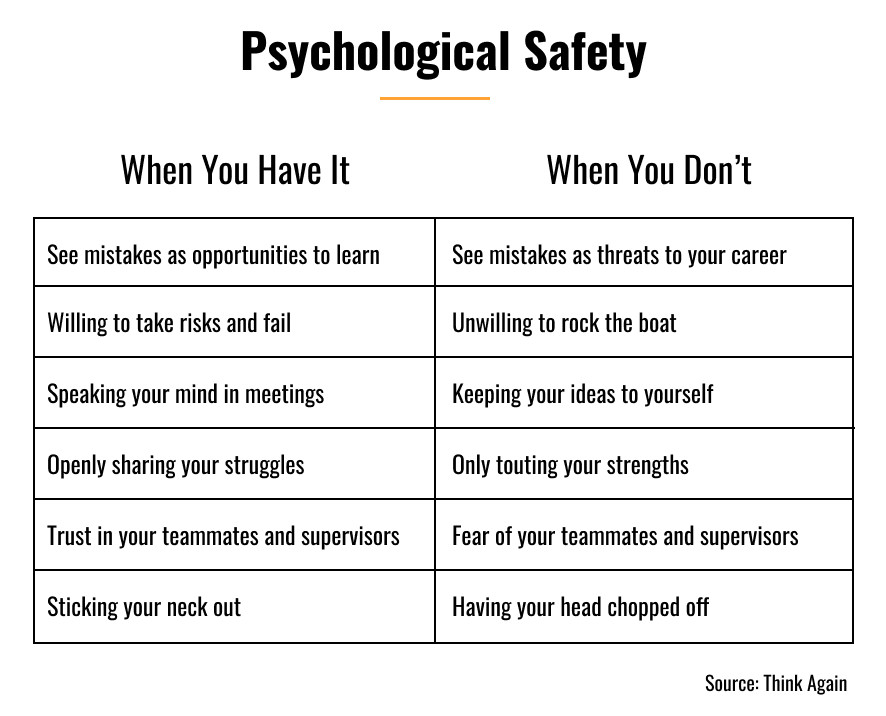
- Teams who feel psychologically safe will report their errors more openly which is the first step to diagnosing the root causes of the mistake.
Psychologically safety means respect, trust, and openness to raising concerns and suggestions without fear of reprisal.
- They learned to ask questions to challenge their assumptions.
- At the Gate Foundation, they started to build psychological safety by telling managers to admit some of their imperfections and listen to feedback. The other employees became more comfortable sharing their own struggles.
- Best practices freeze rethinking, as the practices are already the best, there is no need to improve.
- When the company focuses more on the outcomes people tend to keep doing what works until an accident happens.
- With process accountability combined with psychological safety, people feel free to experiment and voice critics to improve.
- The process must be thought deeply before testing, even if the experiment fails, it is considered a smart experiment.
- At Amazon, they don’t require proof or guarantee of success. The priority is to learn and make rethinking a routine.
PART IV. Conclusion
11. Escaping Tunnel Vision: Reconsidering Our Best-Laid Career and Life Plans
- Setting goals can give us tunnel vision, blinding us from alternatives.
- Escalation of commitment: instead of rethinking our plan when it is not going as we hoped, we double down.
- Identity foreclosure: the person settles prematurely on a self of sense without enough due diligence, and closes his mind to alternative selves.
- Projects can motivate us but there is a fine line between heroic persistence and foolish stubbornness.
- Maybe changing your career path even if you lose several years instead of regretting it for the next twenty years.
- These people might be seduced by the status and feel the need to impress others.
- Doing a regular checkup by asking if their career choice is still aligned with their value is a way to periodically activate the rethinking cycle.
The more people are looking for happiness the more they risk being victims of depression. They focus their attention on asking why their life is not more joyful, they miss the daily little joy, and they chase happiness instead of purpose.
- Happiness depends more on what we do instead of where we are.
- Passions are not found but developed by investing the effort.
Those who contribute to something more important than themselves such as serving the community and the happiness of others experience happiness the most.
- It takes humility to rethink our choices and question our decisions, rethinking liberates us to make new decisions to live a more fulfilling life.

